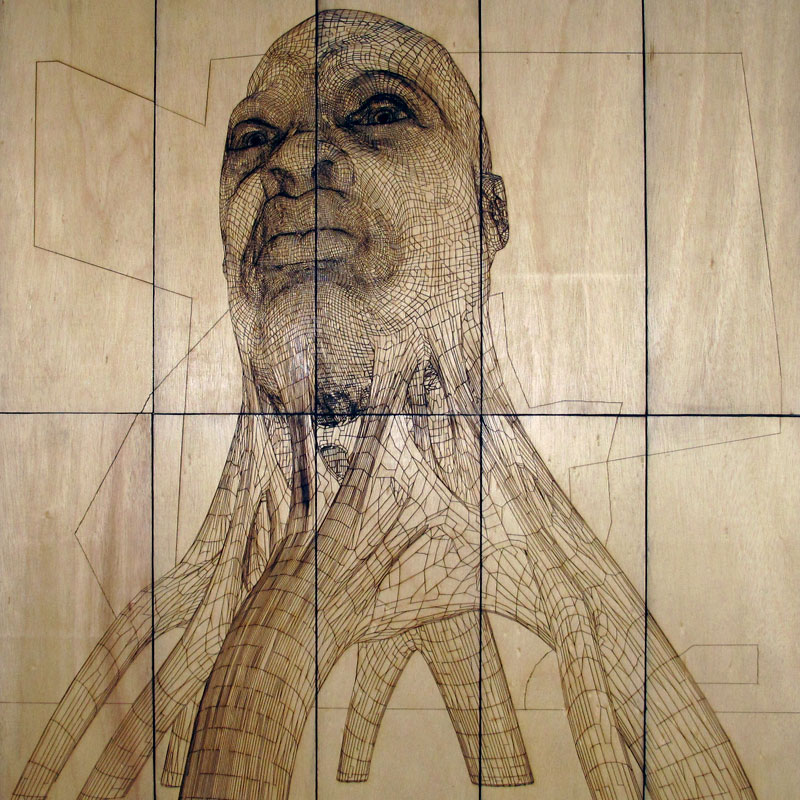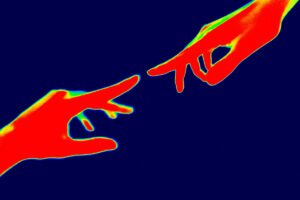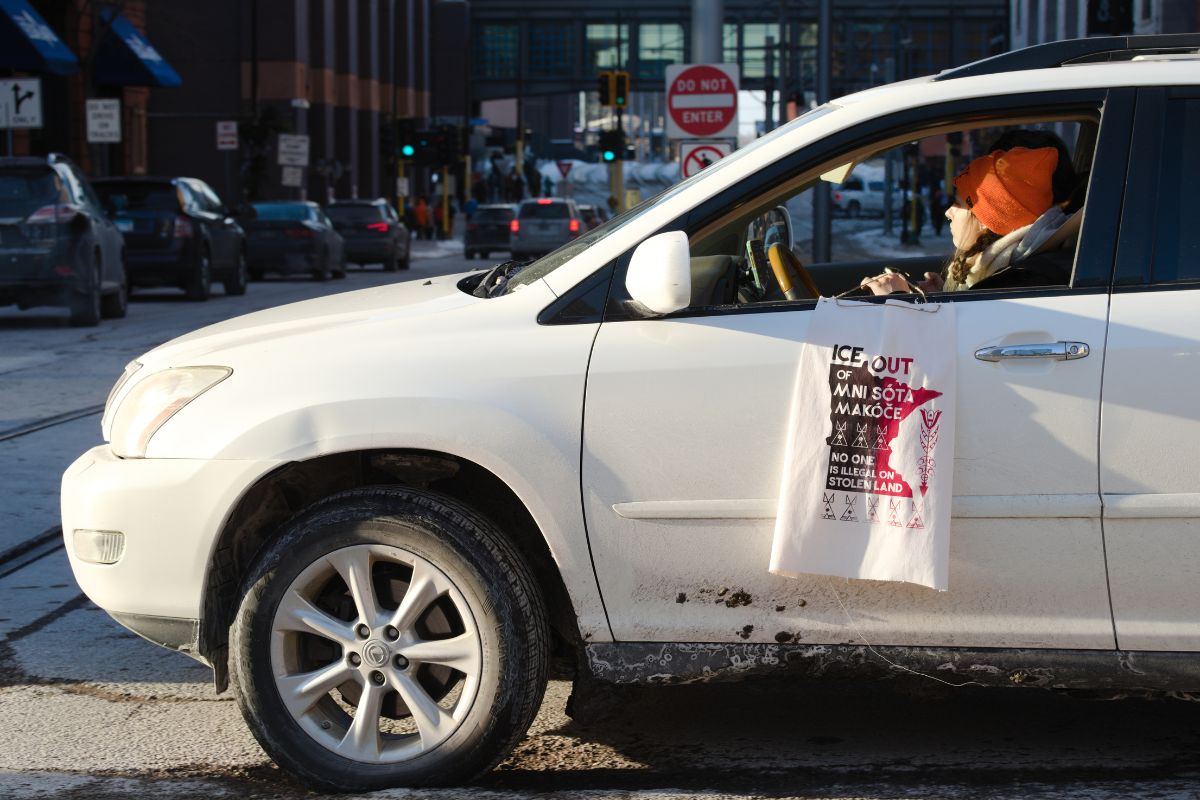
As a young boy growing up in Minneapolis, I didn’t have a clear view of my racial identity until we moved out of our Black community into a predominantly white working-class community in the mid-1960s. I had transferred schools at a time when school desegregation was beginning to take hold. I remember walking into the classroom full of white students, noting just one other African American male student.
On the first day of class, our teacher briefly left the room, and one of the young white boys pointed at me and said, “We have another [n-word] in the classroom.” He and the others then proceeded to take turns hitting me. The other African American male held his head down in shame, with fear that he would also be a target—which he had been previously. When the teacher returned, I told her through tears what happened. She denied that the violent event had occurred and went on with the class.
I had never been called the n-word before, nor did I really understand what it meant—other than that the color of my skin was different than my white classmates’. Many African American students at that time experienced similar trauma as a cruel trade-off for integration.
Reconciling with race and identity has been a complex road. My own identity has been shaped by my environment, the neighborhoods I grew up in, my familial relationships, the culture that surrounded me, and the things I enjoyed. Of course, as I grew older and entered more and more spaces where I was not a part of the dominant group, my Blackness was thrust into the foreground. I found myself being othered by the dominant white culture as I transitioned to college and my career.
Changing the Narrative of African American Leadership
As an African American male who has been in leadership roles for more than 25 years, I have reckoned with my race and the intersection of race and gender. I believe it is important that we pay attention to how we focus on race as our salient identity, but sometimes fail to recognize the role gender plays in our social interactions. This lack of gender awareness creates blind spots experienced by others that can parallel what many people of color experience from whites who don’t recognize their privilege.
In my case, my primary identity is my Blackness. I identify with this consciously and immediately; because of my experiences of being othered, it is core to who I am and how I move through the world. Less immediate are the identity markers that put me in a dominant group—my “maleness,” heterosexuality, and cisgender orientation.
Through the “othering” I experience as a Black man, rooted in historical racial tropes and stereotypes, I have learned the importance of confronting dominant identities. In my experience, when we fail to recognize dominance and power, we perpetuate cycles of harm, impede social progress, and undermine our leadership.
Clearly, Black men contend with a variety of barriers and ideas about who we are and who we ought to be as leaders. When we enter the workforce or other arenas where we become “the other,” we can no longer simply be who we are—we must adapt to the norms and behaviors of a dominant culture that can, at times, look very different from our own. There are many ideas about who we ought to be as fathers, partners, and leaders. They are often informed by tropes, stereotypes, and trauma.
When I was a young adult with children, I was fearful of traveling by car to certain parts of the country for fear that we would be mistreated, lynched, or worse. I had my own version of Green Book, wherein African Americans needed specialized maps to denote where it was safe to travel. It took some years for me to feel safe traveling by car in places like the Northwest, where skinheads and other white nationalist groups are prevalent.
Throughout the African American experience, from enslavement to today, African Americans have been lynched and have suffered demeaning humiliation at the hands of white Americans. This includes the documented lynching of more than 4,000 African Americans in at least 20 states from 1882 to 1968. Most lynching victims were African American men. Just like back in my first-grade classroom, whites embraced violence and brutality as a way of maintaining order and used their tropes and stereotypes to justify horrific cruelty.
Brutalizing African American men did not stop with the practice of public lynching. We know that Black men in America have the highest risk of being killed by the police over the course of their lifetimes, a reality that was thrown into stark relief in May 2020 with the police killing of George Floyd in Minneapolis. Many Black men I know, including myself, have endured traumatizing interactions with the police that have continued to impact our lives—regardless of when the incident occurred.
This fear and trauma also affect how we see ourselves fitting into stereotypical male roles. Men are supposed to be courageous, bold, and fearless breadwinners for their families. At least, these are the stereotypes society clings to—stereotypes that are based on a white ethos of “maleness.”
Sign up for our free newsletters
Subscribe to NPQ's newsletters to have our top stories delivered directly to your inbox.
By signing up, you agree to our privacy policy and terms of use, and to receive messages from NPQ and our partners.
From Overt to Covert: Microaggressions and the African American Psyche
Years later, I would experience comments and actions from my white colleagues that left me continuously uneasy and unsettled—and I couldn’t quite put my finger on what was happening. My white colleagues would regularly question my credentials, my ideas, or my work. Each time I would challenge their assumptions, they would indicate they didn’t mean anything by it, and that I was being too “sensitive.”
Not long after, I would discover the term “microaggressions,” and it was like a light went on. I finally had a term to define my experiences. I felt that many of these colleagues had their own perception of my Black identity, one that was not based on the identity I had built for myself. According to Rudolph F. Jamison Jr. in Black Male Perspectives of the Role Race Plays with Black Male Leader/Leadership Development in the World of Work, “African American men can experience varying sociocultural norms that conflict with their inherent and socialized behaviors. This sociocultural discord causes psycho-emotional dissonance, personal distress, anxiety and guilt.”
While microaggressions are not as overtly cruel or physically brutalizing as lynching, they still have a significant detrimental effect on the psyches of African Americans. On the flipside, understanding these microaggressions helped me put in context what was happening.
When I started my most recent position at Prosperity Now (taking over from a long-term white leader), I experienced what I now perceive as microaggressions from many of the white funders with whom I interacted. Usually, the white funders would start conversations by asking, “What makes you think you can step into this role and be successful?” At first, I didn’t take this as a microaggression, but as it happened repeatedly, it began to feel like my credentials or what I’d done previously in my career didn’t matter.
It’s hard to know if their comments were routine, or if they were tinged with implicit racial bias. As an African American male who has been subject to these slights and microaggressions, it becomes hard to discern. I can only contrast this to my interactions with funders of color. A funder of color has never questioned my credentials or asked me what makes me think I could be successful in my role. When I meet with funders of color, the conversation focuses more on my vision and where I want to go, and less on whether I have the credentials to do the job.
According to a recent study conducted by Bridgespan and Echoing Green, nonprofits led by people of color are awarded less grant money with more strings attached. In part, this is due to unconscious bias and ingrained practices, such as questioning credentials. Strong interpersonal relationships are a key component to successful fundraising, and bias on the part of white funders is severely detrimental to relationship building for nonprofit leaders of color. Therefore, acknowledging privileged identities and becoming aware of biases is critical.
Acknowledging Our Dominant and Targeted Identities
My Black identity has been much more salient to me than my male identity throughout my life. Not being aware of our more dominant characteristics is not unusual. In areas where a person is a member of the dominant or advantaged social group, that dominant characteristic is often not mentioned or noticed. According to former Spelman College president (and psychologist) Beverly Daniel Tatum, this is because dominant traits are “taken for granted by the dominant culture.” As a male, I did not always consider my “maleness” in relationship to my professional life, and it was rarely mentioned by others.
I have noticed that people in dominant roles often don’t think consciously about or notice these roles (i.e., males, whites, heterosexuals, etc.). I have been in numerous mixed-race groups discussing racial identity, and I almost always notice the same thing: Many whites can’t identify what it means to be white—it’s like the air to them, in some ways. It’s there, but you don’t really notice it. With people of color, most of us identify clearly and consciously with our racial identification. We identify with our targeted group because of the commonality of racial oppression. However, all of us have multiple identities and exist in dominant and targeted groups simultaneously.
Acknowledging our dominant identities and the traits associated with them is critical in being mindful of how those identities play themselves out in ways that are sexist, racist, homophobic, transphobic, etc. As I mentioned earlier, dominant characteristics can be subconscious unless one makes a significant effort to bring these characteristics to the surface through social interactions and/or interventions such as unconscious bias training. It is bringing the unconscious into consciousness that breaks the pattern of maintaining racial and gendered hierarchies.
What I’ve Learned
It is important to recognize that there are individuals and groups who don’t identify with any dominant or power-based identities, e.g., Black trans women. Leaders must take affirmative steps to ensure these often-marginalized voices and perspectives are heard, their experiences are validated, and that they are not subject to microaggressions and other forms of discrimination.
I have learned a few important lessons for African American male leaders that may help in their success:
- Acknowledge the ways in which we benefit from our membership in a dominant group. For me, this means recognizing the power and privilege I have as a male and not taking for granted the ways in which I have benefited.
- Consciously acknowledge that male privilege has impeded the progress of women in the workplace.
- Communicate directly to our white colleagues when we feel disrespected by their microaggressions.
- Invite, and remain open to, feedback from our women colleagues on what they perceive as gender bias and its impact on their wellbeing.
- Engage in unconscious bias training to learn more about our own biases as well as how to mitigate them.
African American men in leadership need to recognize our maleness in order to truly support and empower others. The key is to get comfortable with the discomfort of confronting our own biases and privilege. Leaning into behaviors and practices that confront my dominant identity has helped me to make real progress. This has allowed me to gain greater empathy and the care needed to become a better leader and strengthen efforts toward our collective liberation.












